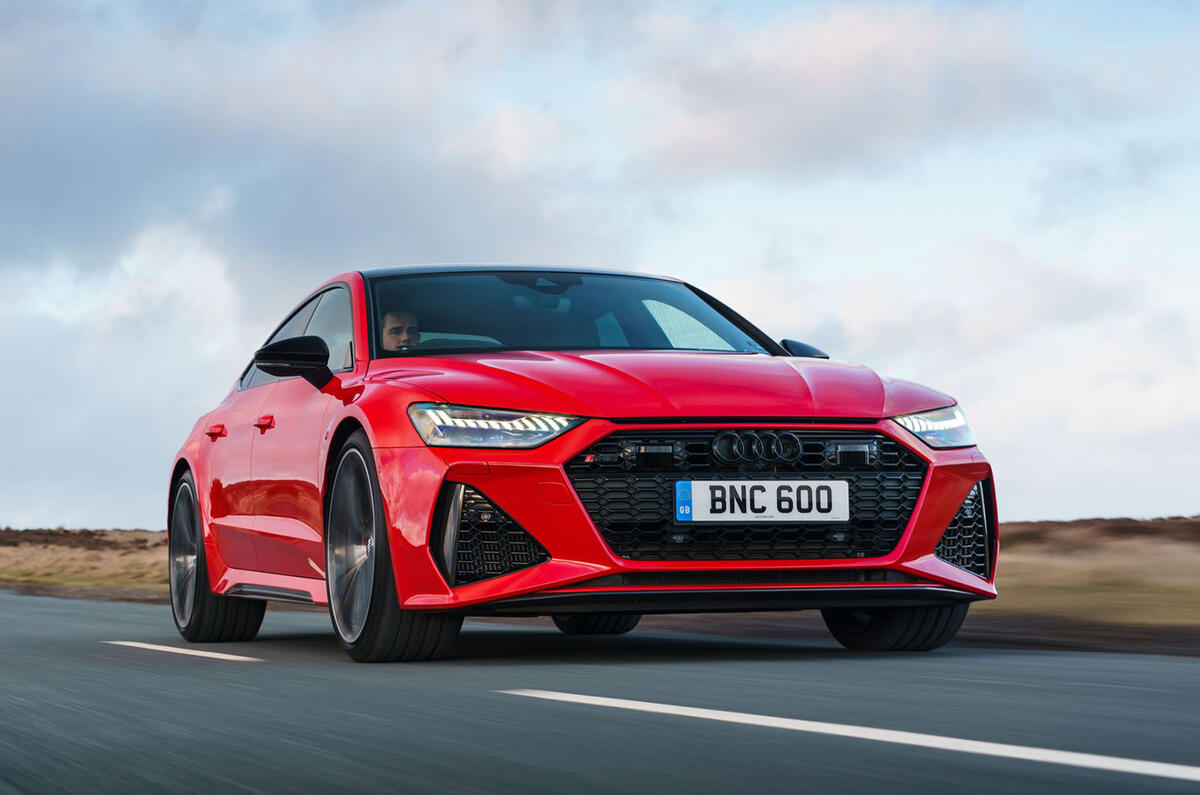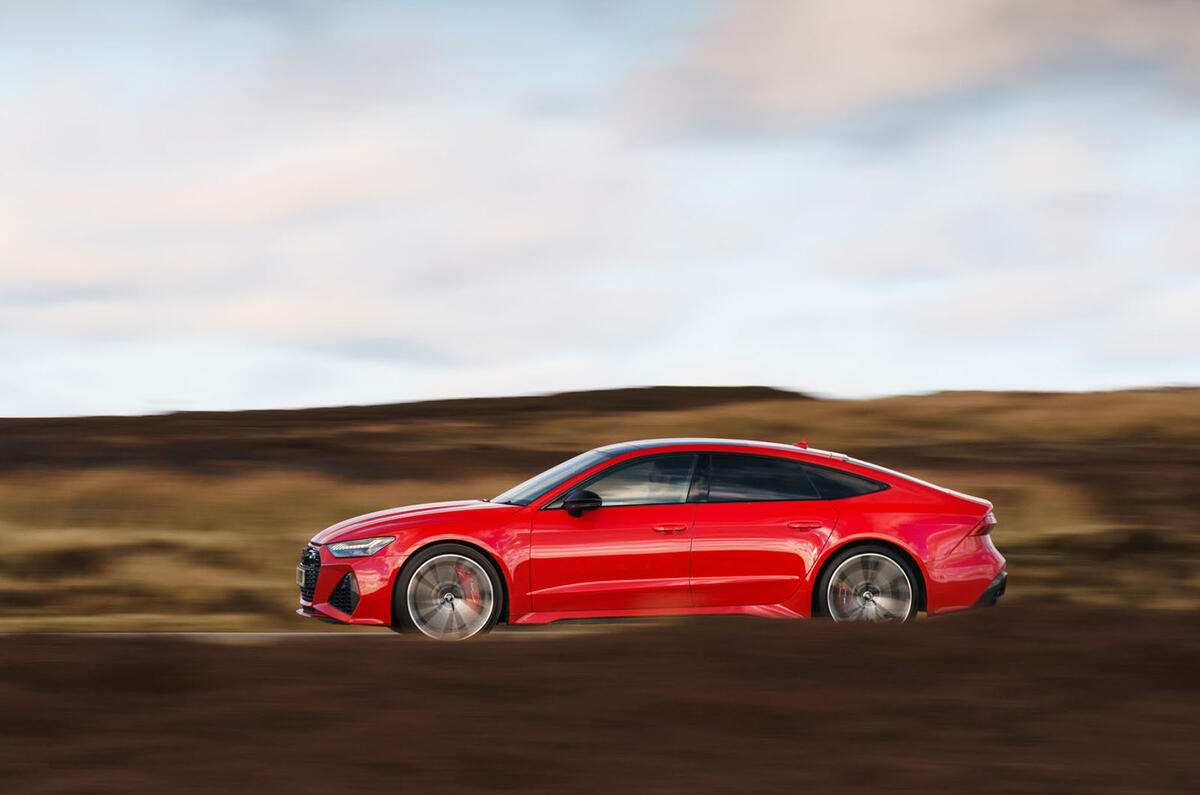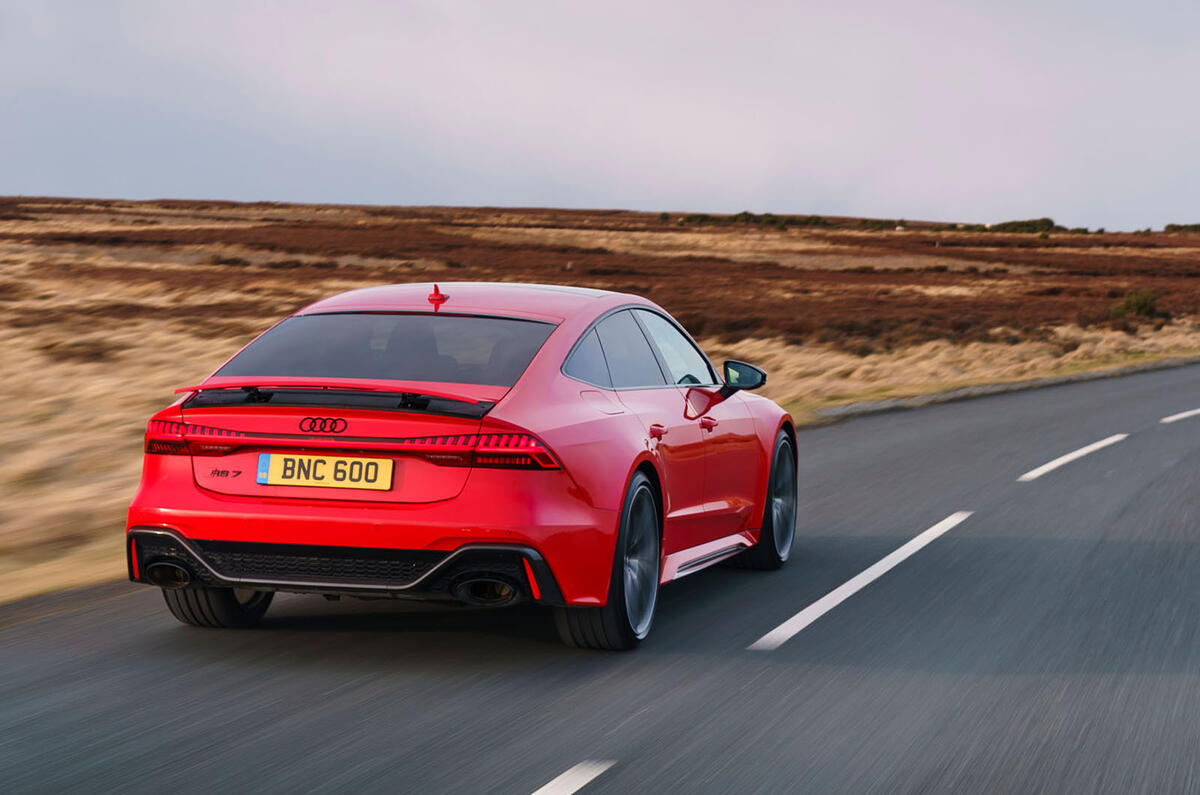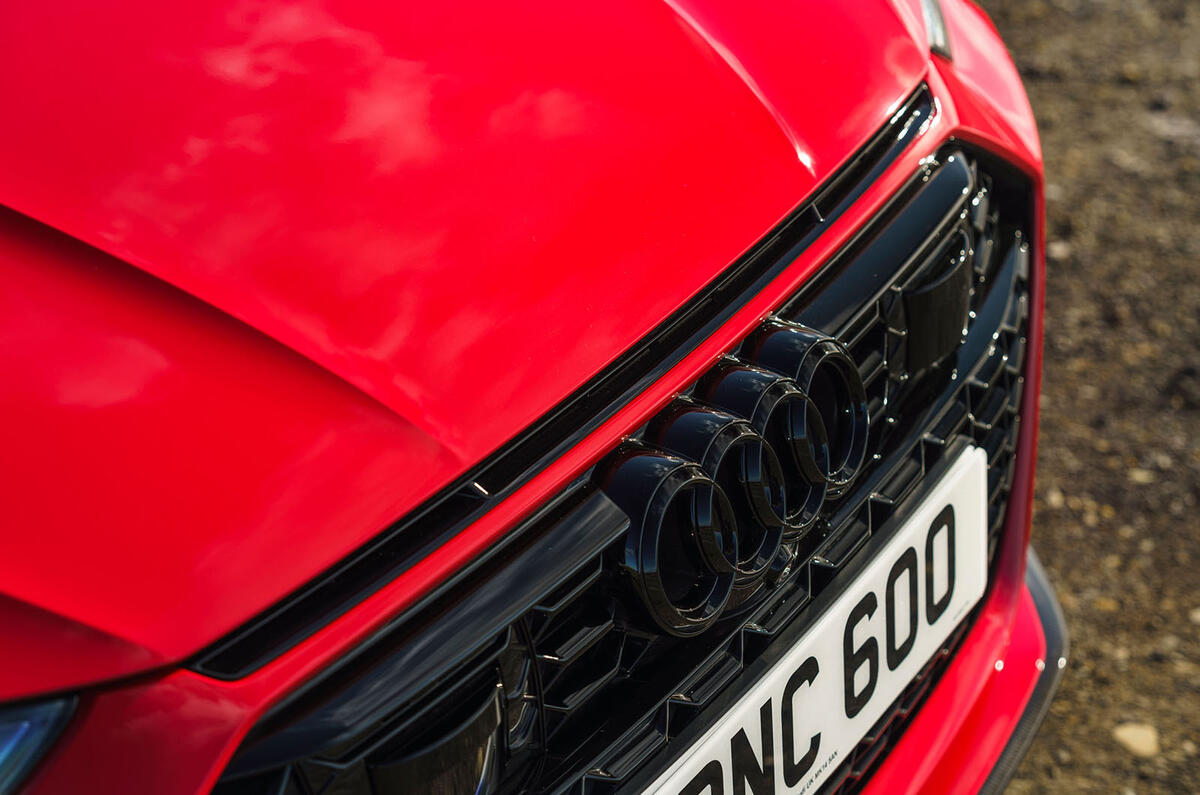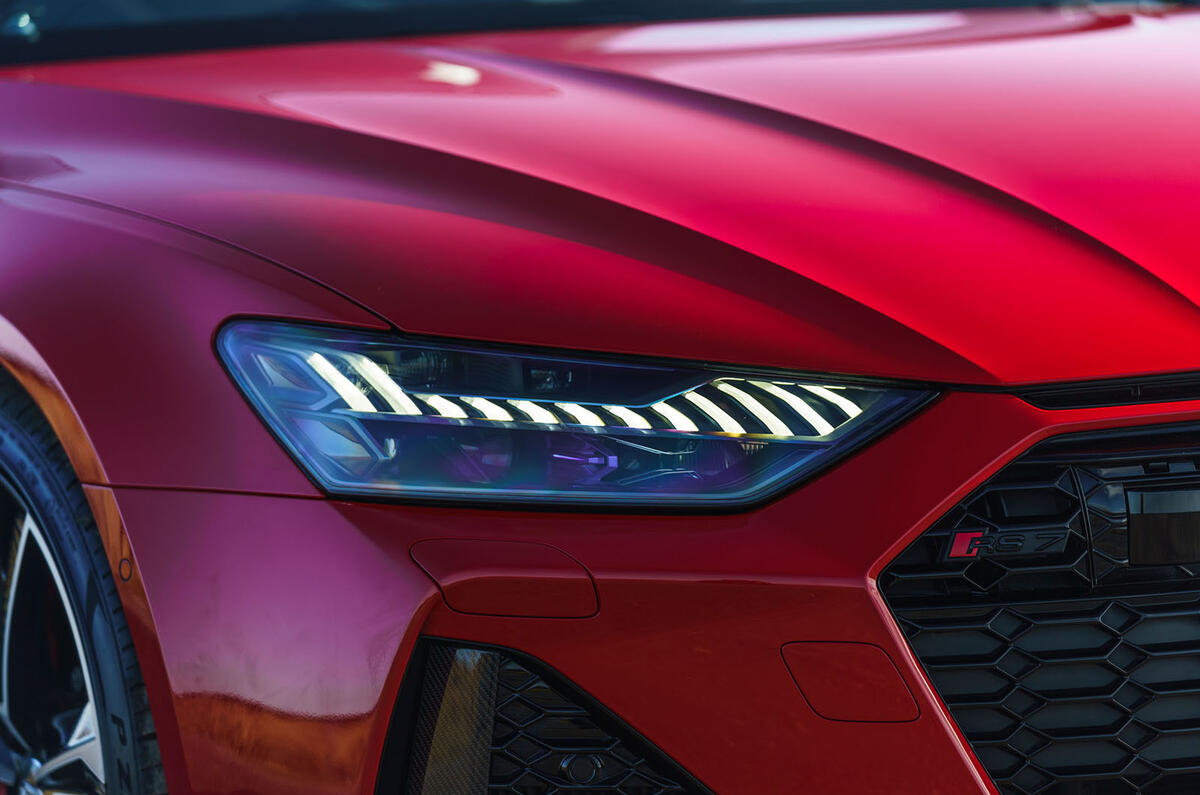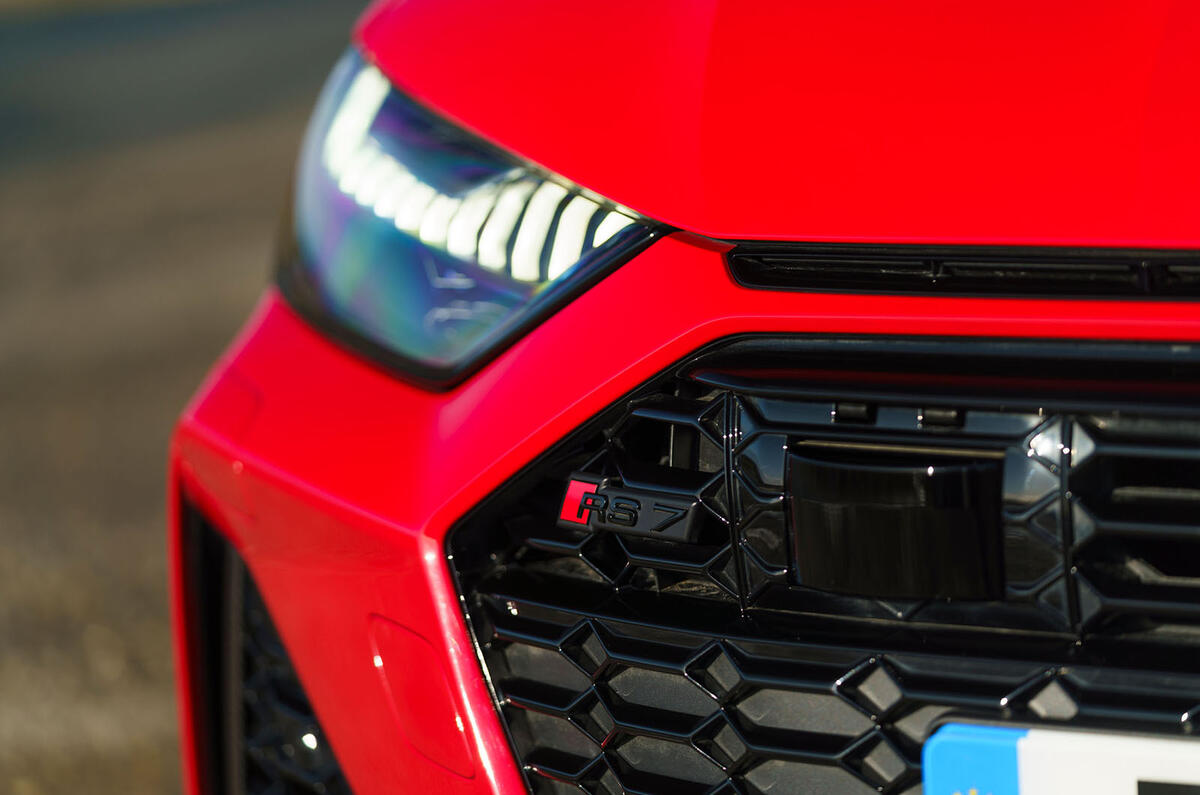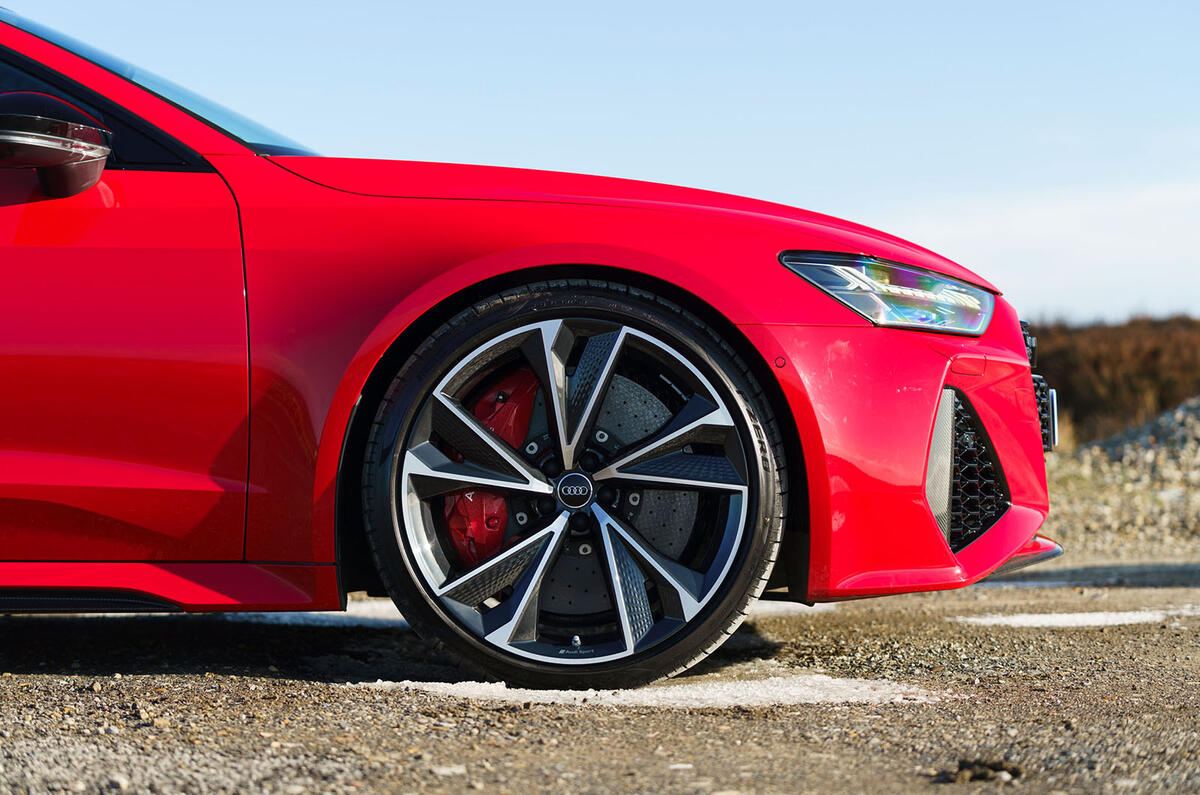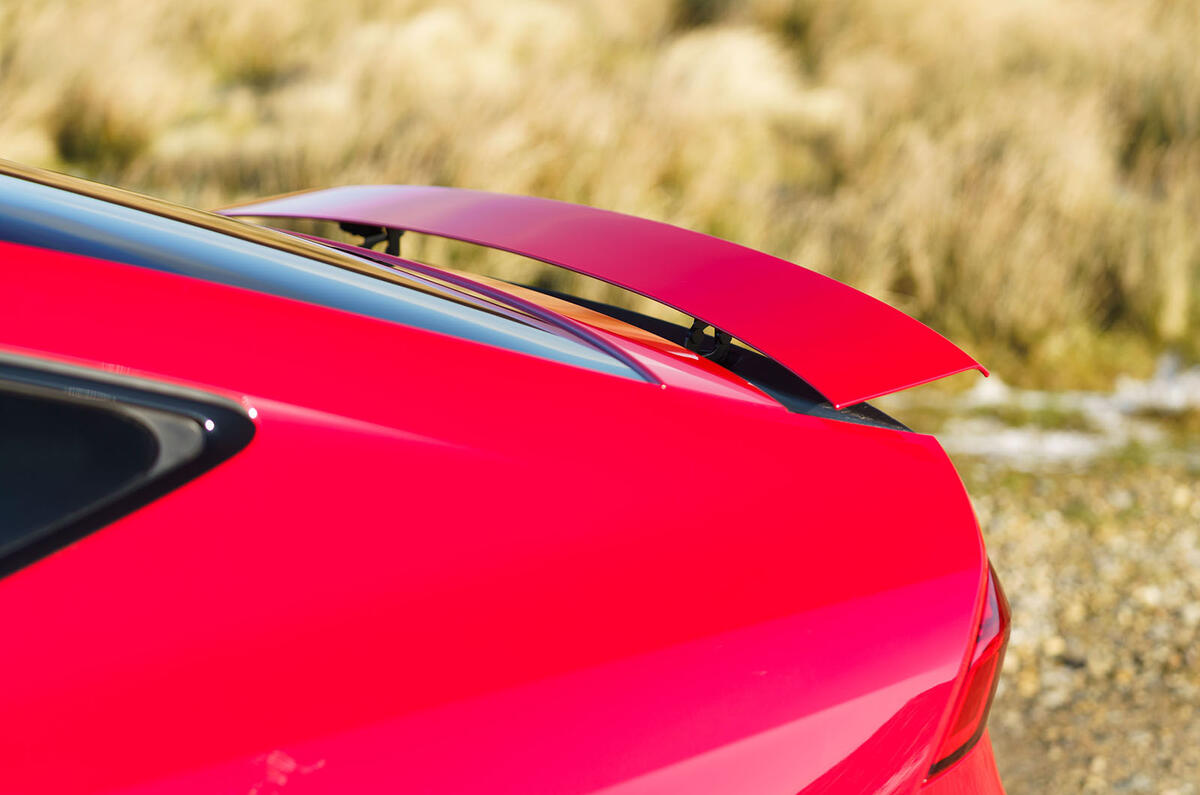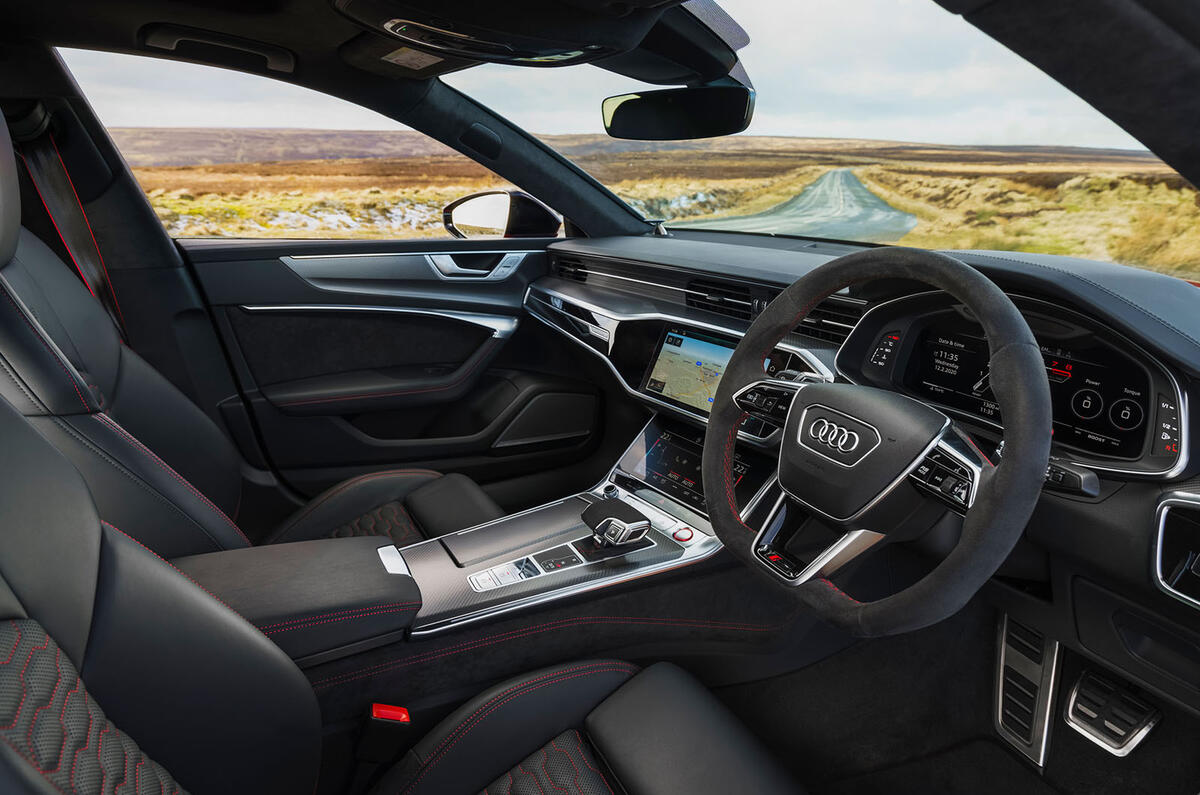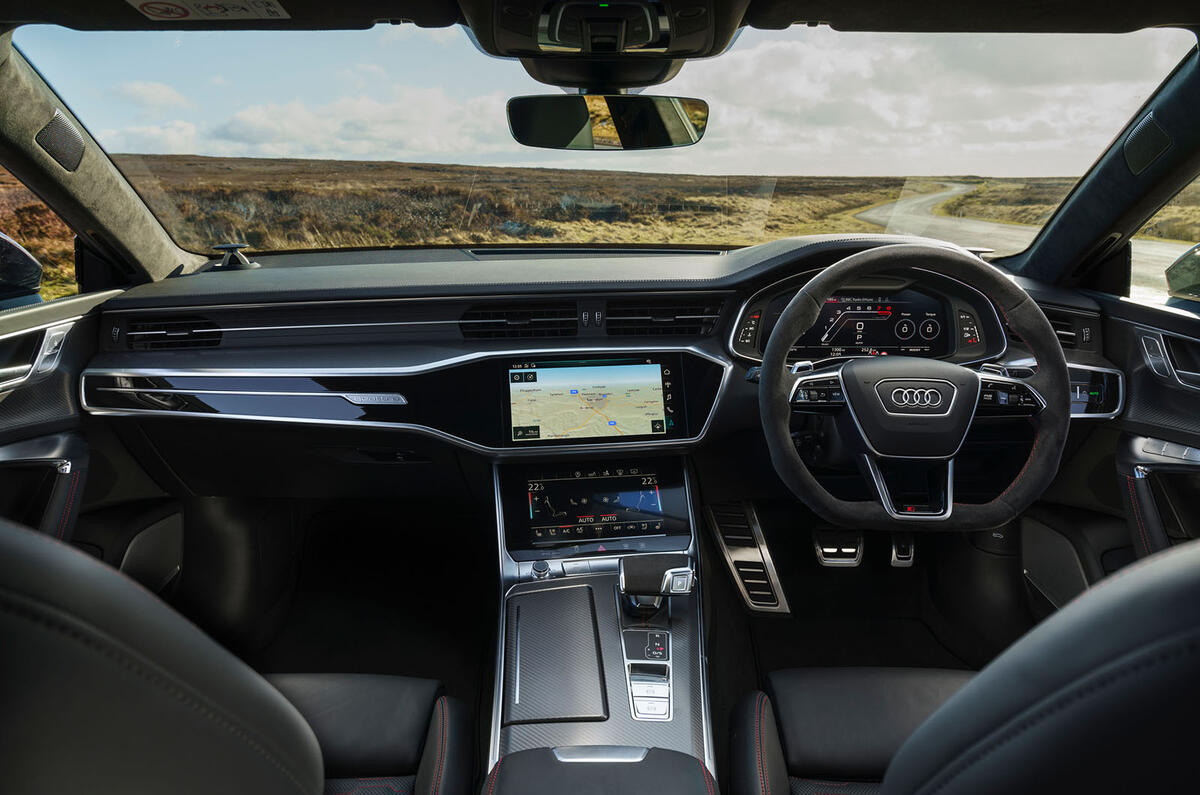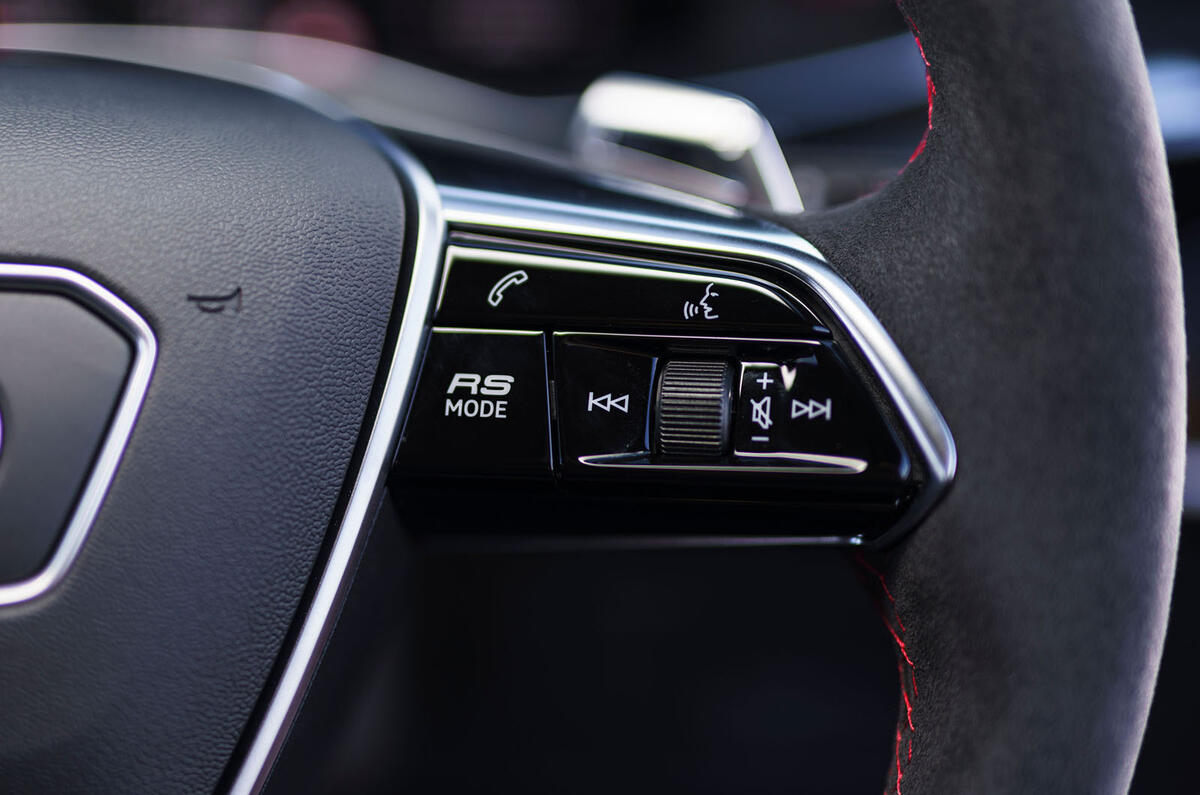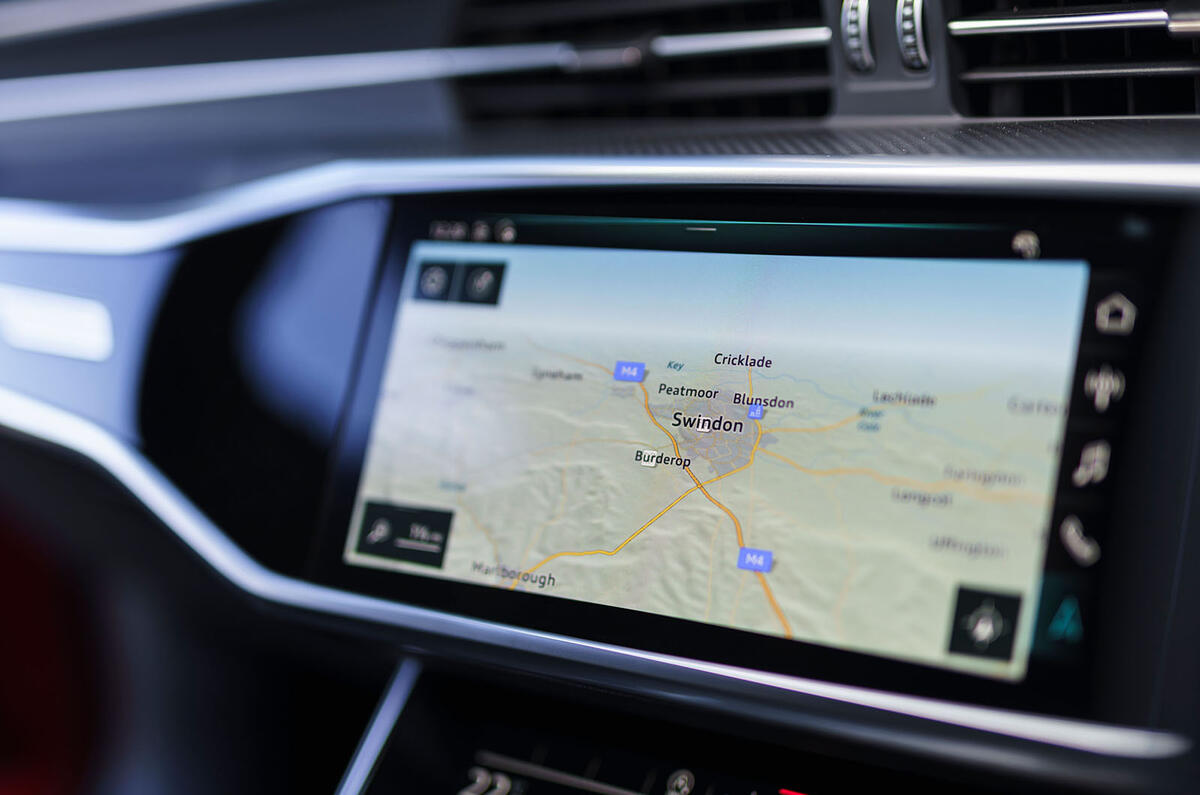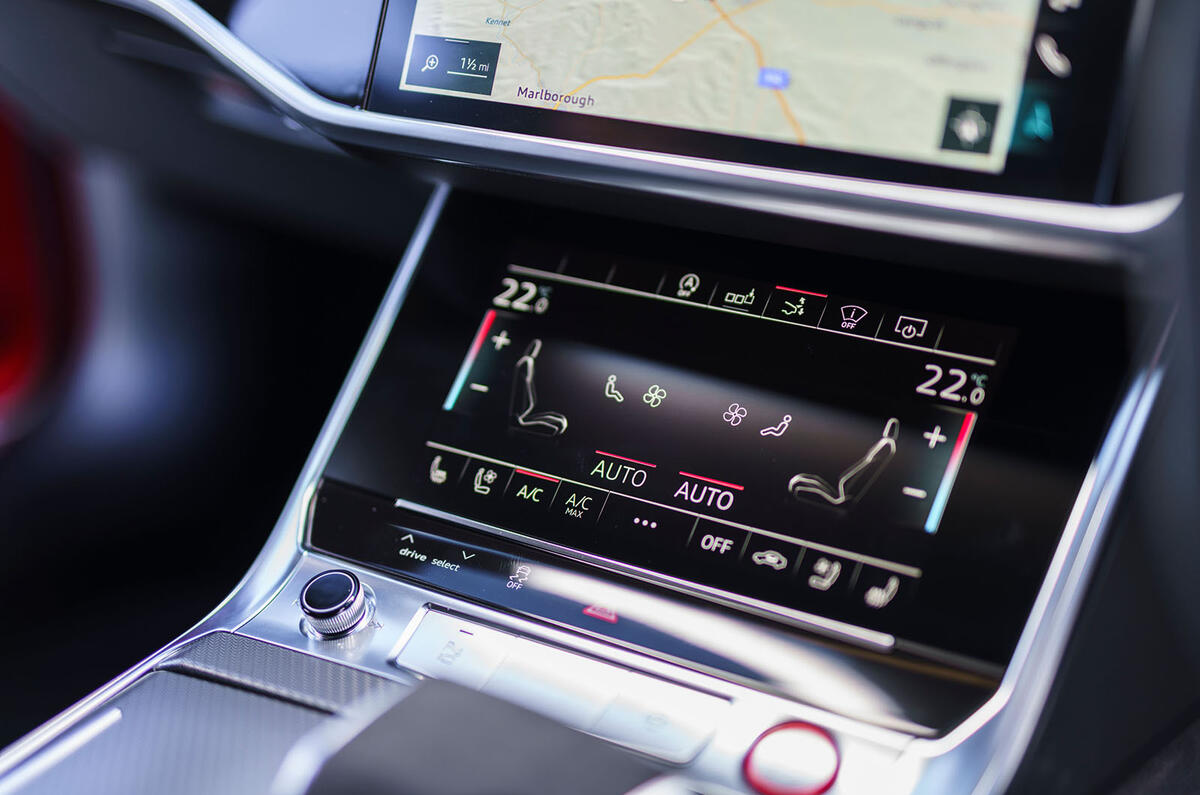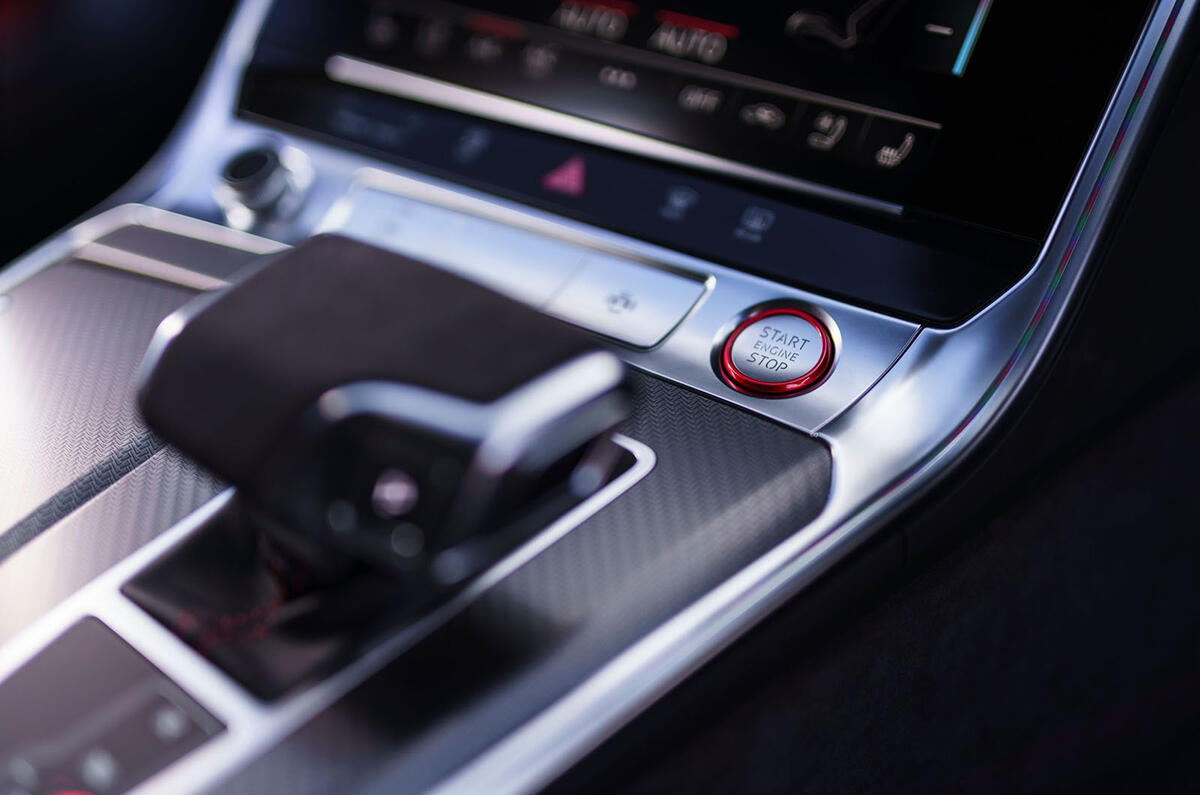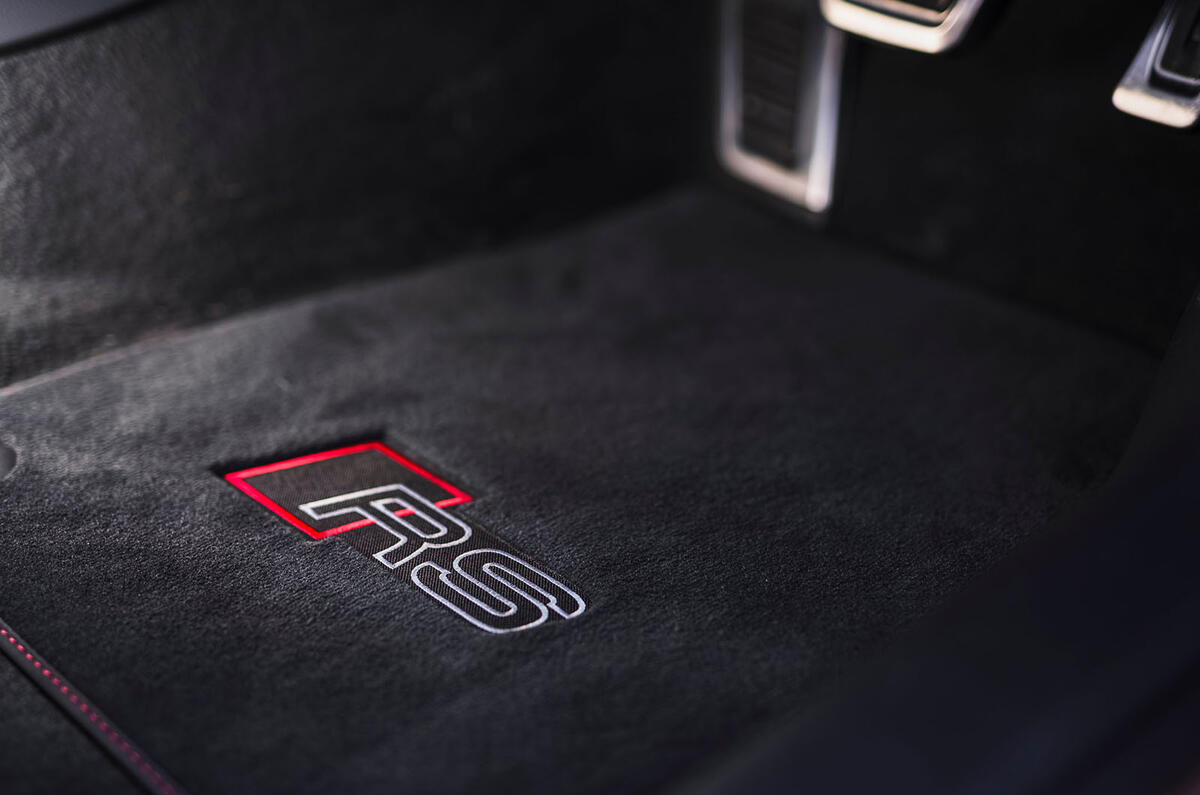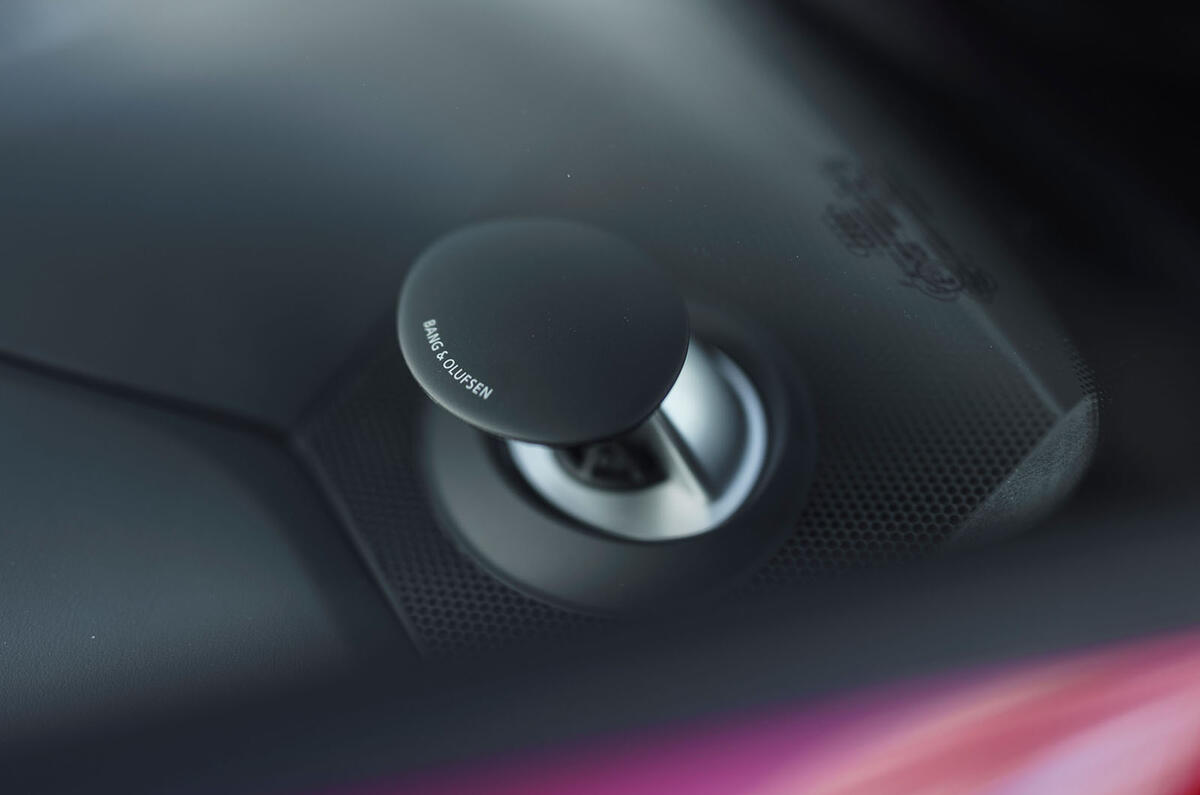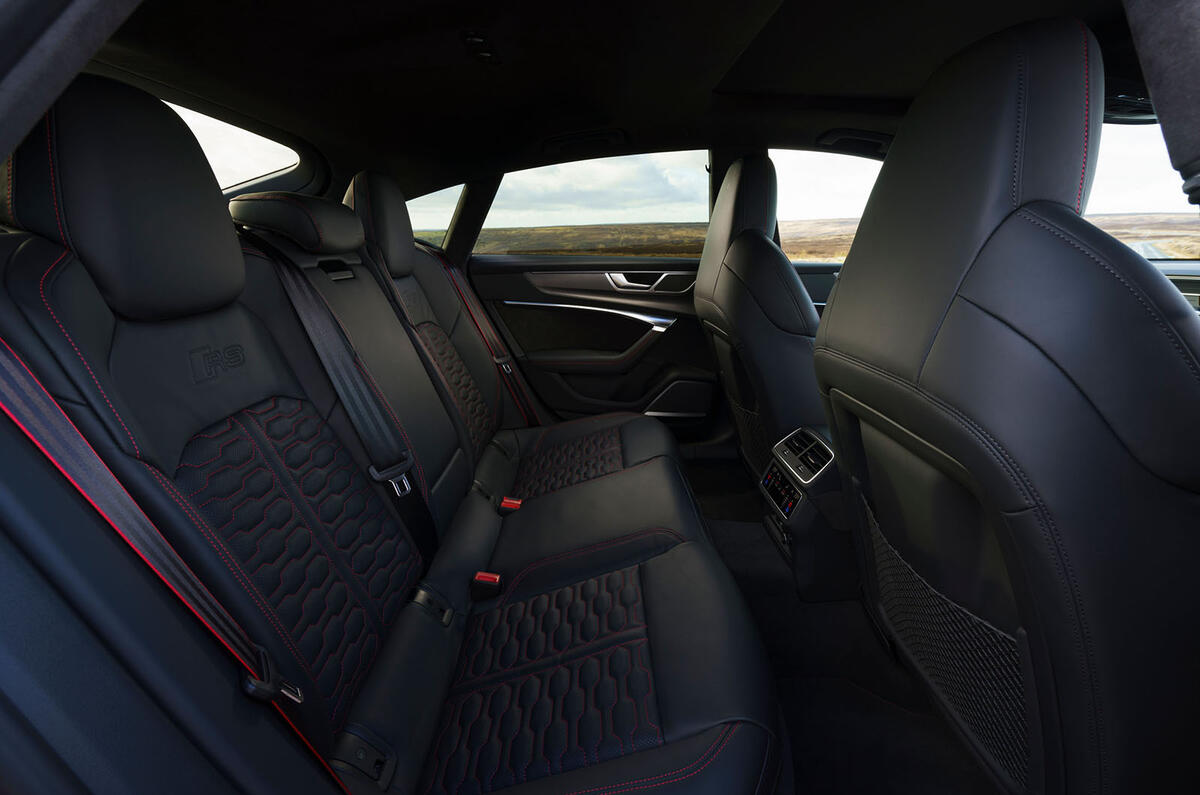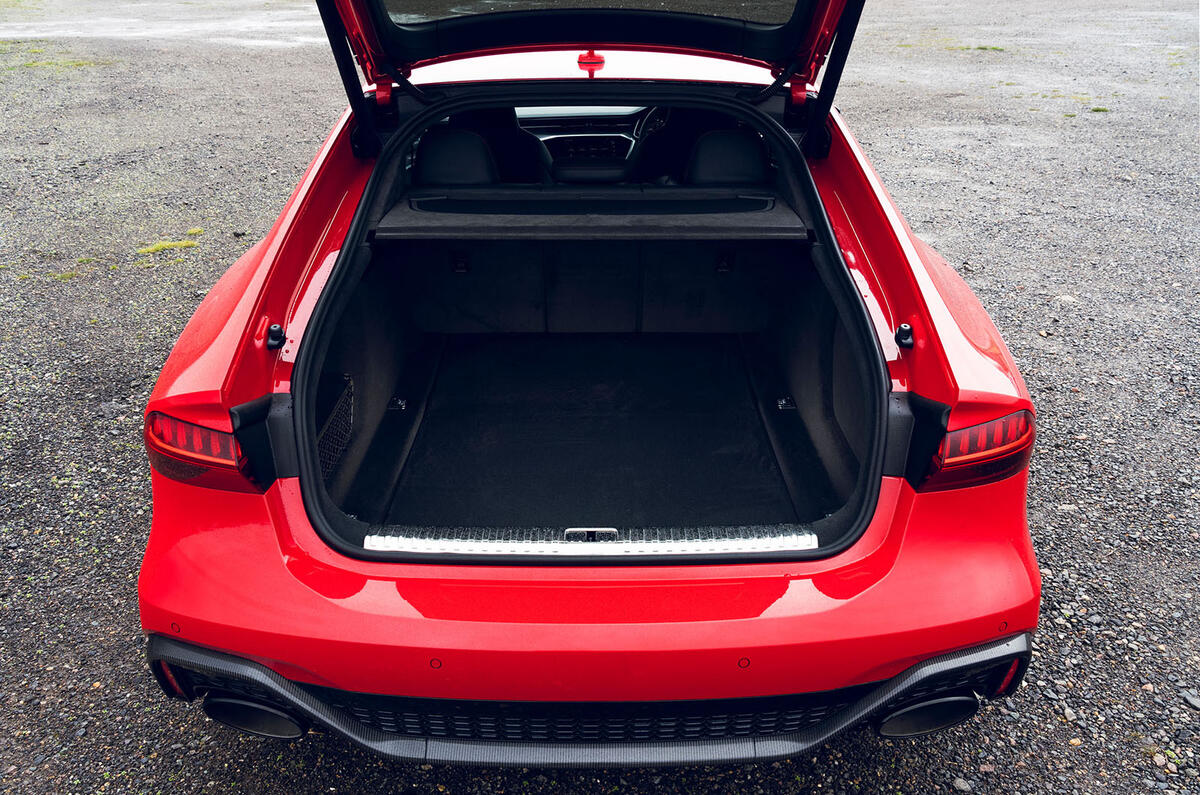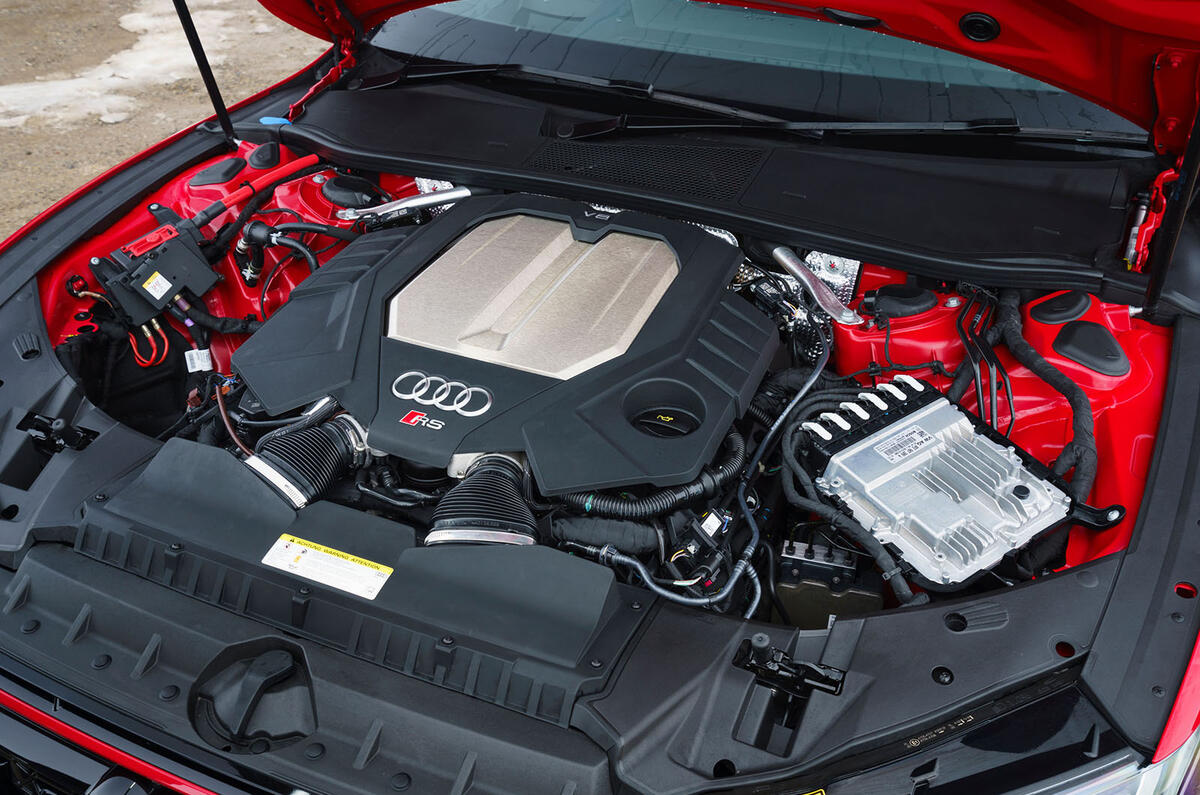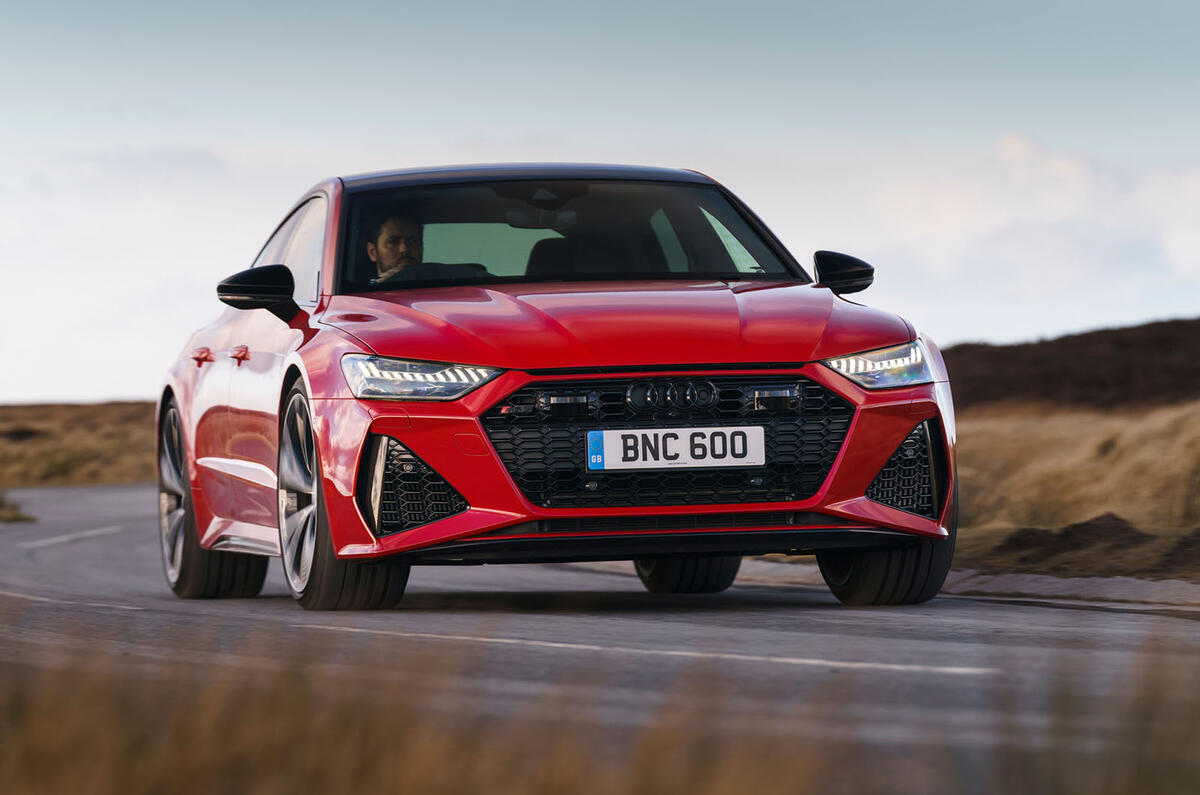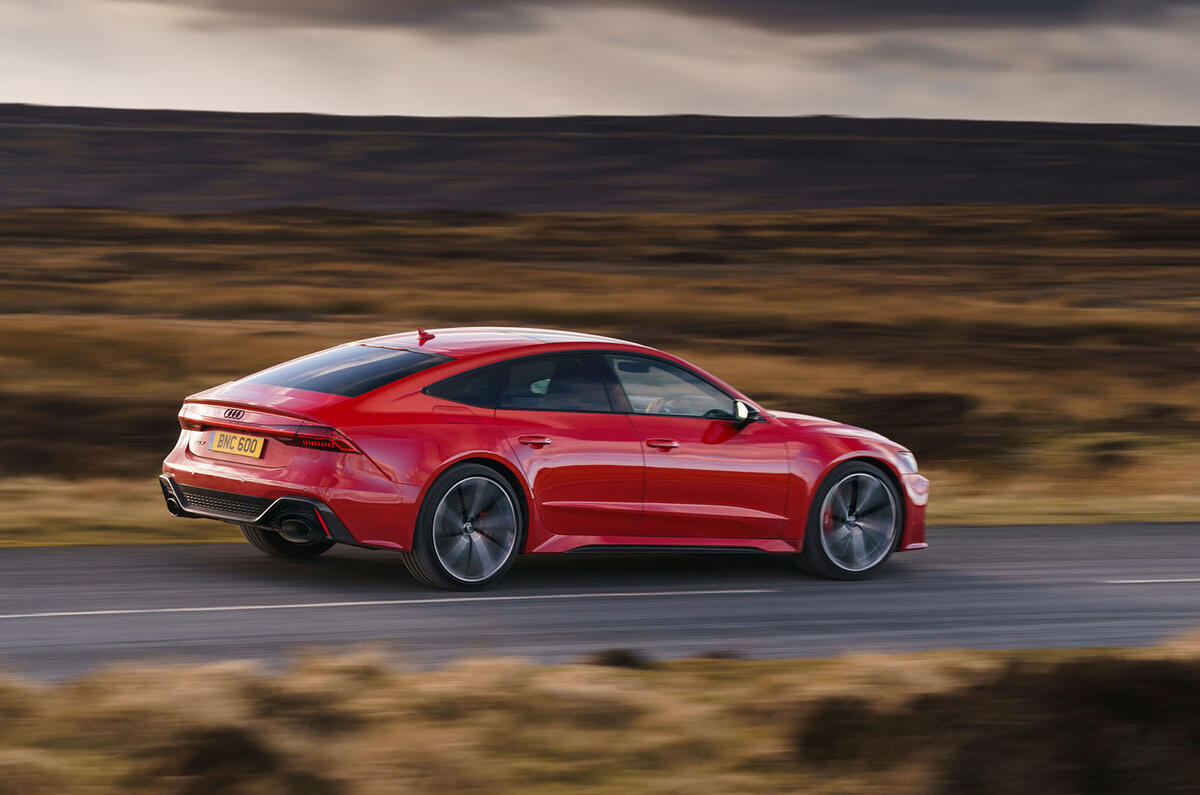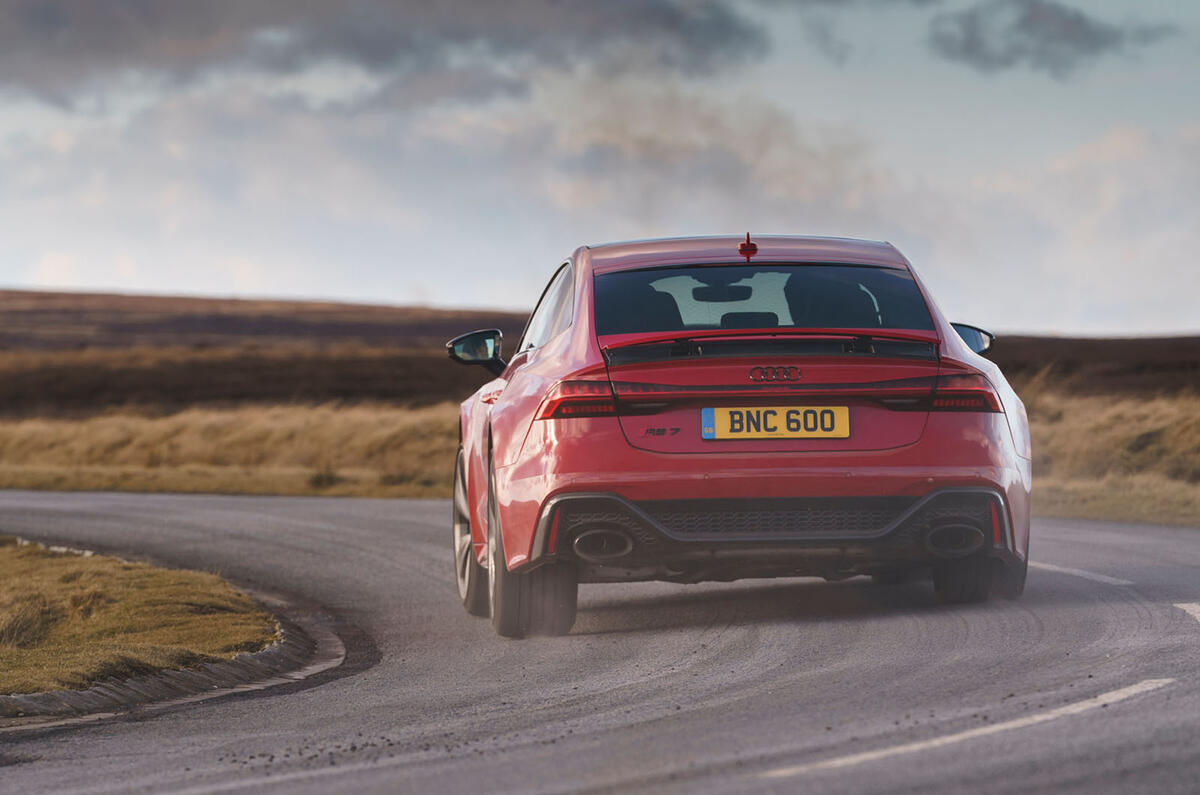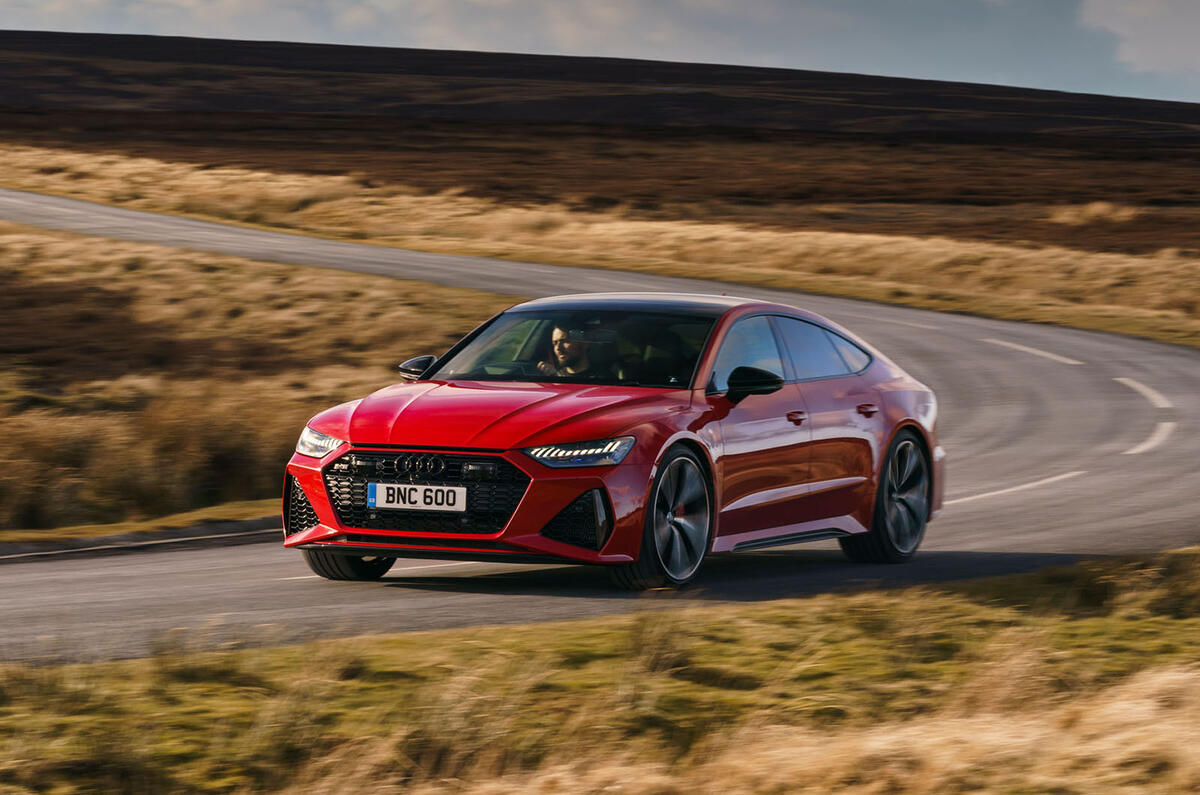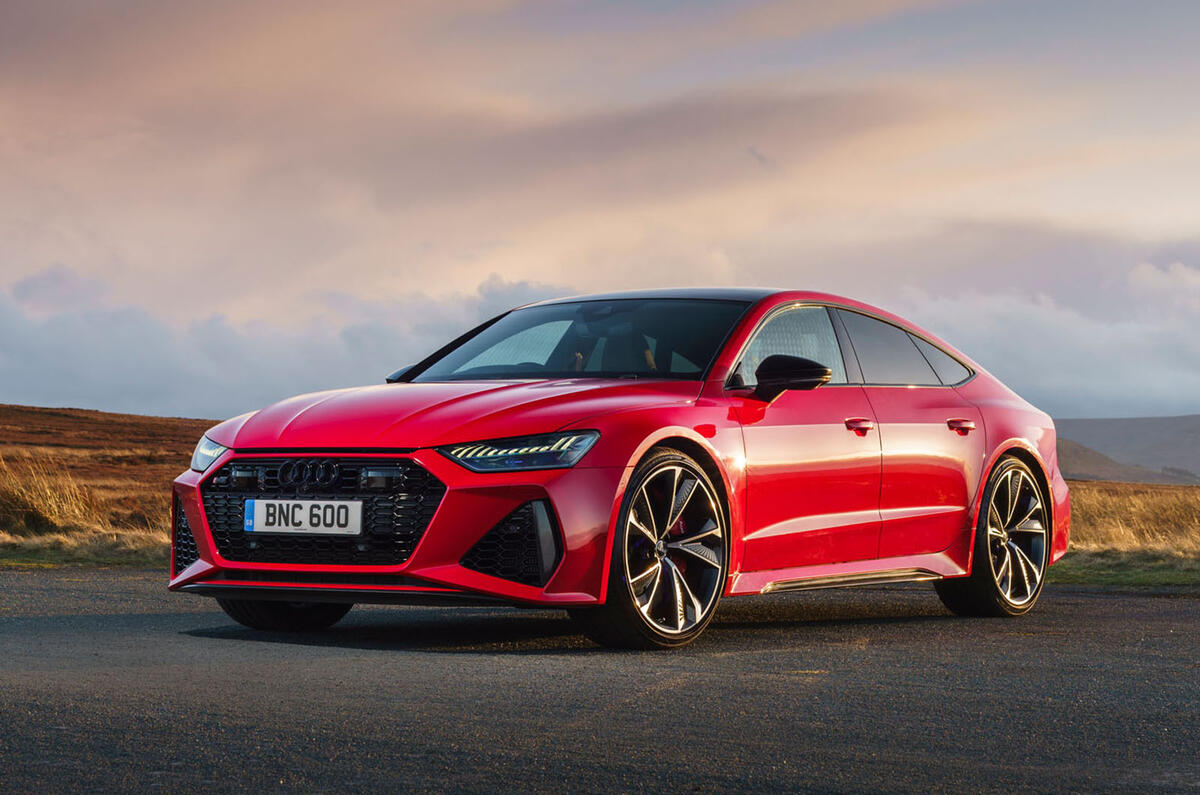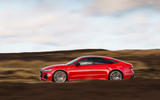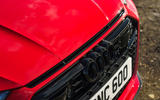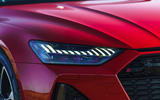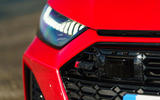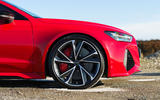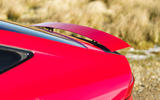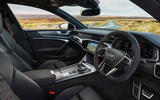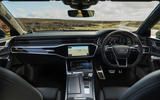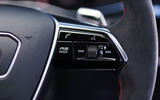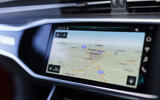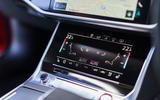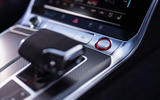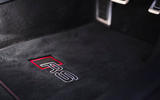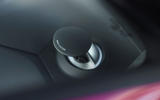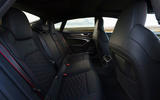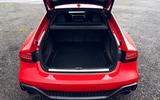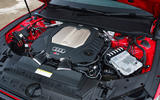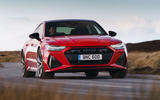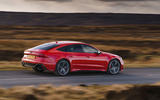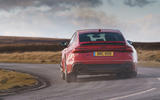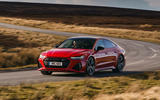Despite the Audi RS7’s massively swollen arches and sharp, sinewy flanks, it isn’t a four-door, all-paw performance saloon that drives in the hardcore manner that its hardcore looks suggest it might.
That seems like a slightly contradictory statement about a machine with a twin-turbocharged 4.0-litre V8 at its disposal - particularly one that makes 591bhp and 590lb ft – and can hit 62mph from a standstill in 3.6sec. But the fact of the matter is that even on Britain’s scab-riddled roads, it manages to keep its effortless, autobahn-devouring grand tourer image firmly intact. Unlike so many of its hard-edged super-saloon contemporaries, the RS7 prioritises massively usable, devoutly sure-footed performance and everyday appeal over and above any ability to provide immersive, tactile point-to-point thrills.
This has long been an Audi Sport theme, and given that the UK’s roads aren’t getting any wider or any emptier, you can see how the logic of such an approach will be appreciated in certain circles. And with this new RS7, Ingolstadt has done plenty to give it an edge when it comes to real-world drivability.
So you get a 48V mild-hybrid system for the first time that - in conjunction with the V8’s ability to shut down half of its cylinders at cruising speeds - provides fractional improvements in fuel consumption and a reduction in emissions. The introduction of rear-wheel steering, meanwhile, helps to virtually shorten the RS7’s wheelbase and make it easier to thread its 5.0m-long aluminium and steel body through tight inner-city car parks.


